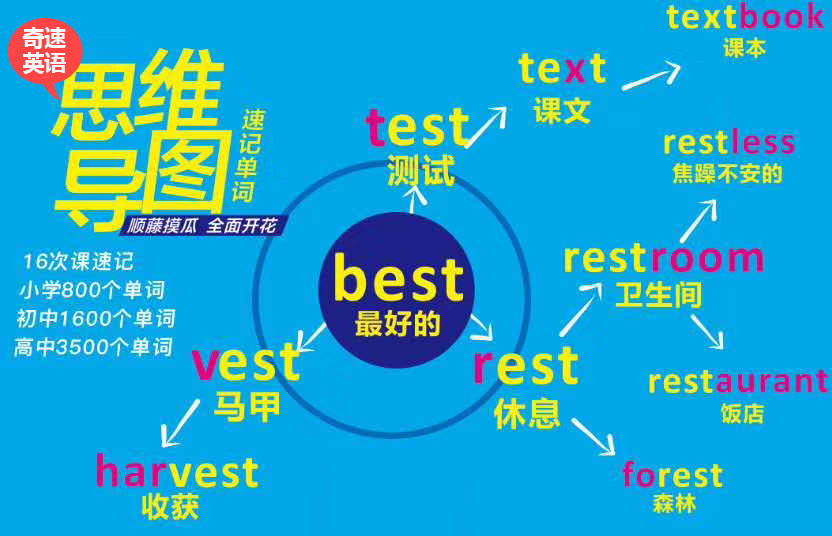Unit5 What were you doing when the rainstorm came?
rainstorm [ˈreɪnstɔ:m] n. 暴风雨
heavily [ˈhevɪli] adv. 在很大程度上,大量地
suddenly [ˈsʌdənli] adv. 突然地
pick up(=pick up the phone) 接电话
strange [streɪndʒ] adj. 奇怪的,陌生的,奇特的
light [laɪt] n. & v. 电灯;点燃
report [riˈpɔ:t] v. 报导,报告
area ['eərɪə] n. 范围,地域,地区
flashlight ['flæʃlaɪt] n. 手电筒,火炬
against [əˈgenst] prep. 反对,对…不利
asleep [əˈsli:p] adj. 睡着的,熟睡的
fallen [ˈfɔ:lən] adj. 倒下的,落下的
apart [əˈpɑ:t] adv. 分离,分开
icy [ˈaɪsɪ] adj. 覆盖着冰的,冰冷的
kid [kɪd] n. & v. (口语)小孩;开玩笑,欺骗
realize [ˈri:əlaɪz] v. 认识到,了解
passage [ˈpæsɪdʒ] n. 章节,段落
completely [kəmˈpli:tli] adv. 彻底地,完全地
shocked [ʃɔkt] adj. 震惊的,震撼的
silence [ˈsaɪləns] n. 寂静,沉默
recently [ˈri:sntli] adv. 不久前,近来,最近
terrorist [ˈterərɪst] n. 恐怖分子
truth [tru:θ] n. 真相,真理,事实
8. in times of difficulty 在困难的时候
9. at the time of 当.......时候
11. take a hot shower 洗热水澡
14. bring... together 使……靠拢
16. miss the event 错过这个事件
17. by the side of the road 在路边
18. the Animal Helpline 动物保护热线
20. make one’s way to.... 在某人去……的路上
22.important events in history 历史上的重大事件
30.the World Trade Center 世贸中心
32.have meaning to 对……有意义
33.remember doing sth. 记得做过某事
1. — What were you doing at eight last night? 昨晚8点你在干什么?
— I was taking a shower. 我在洗淋浴。
2. When it began to rain, Ben was helping his mom make dinner. 当开始下雨的时候,本正在帮他妈妈做晚饭。
3. — What was Jenny doing while Linda was sleeping? 琳达在睡觉的时候,珍妮正在干什么?
— While Linda was sleeping, Jenny was helping Mary with her homework. 琳达在睡觉的时候,珍妮正在帮玛丽做作业。
Susanna所在的城市昨天晚上发生了一场地震。很幸运,地震并不强烈,他们全家安然无恙。假如你是Susanna请描述一下地震发生时家里人的活动情景,80词左右。
My name is Susanna. In our city, there was an earthquake at 8:32 yesterday evening.
At that time, I was taking a shower in the bathroom. My motherwas cleaning up the kitchen and my father was watching TV in the livingroom. My elder sister Alice was working on her computer in her room. We were very scared.
Luckily, the earthquake was not heavy and it didn’t last long. And we were all safe.

I’ll miss you when you go toCanada.
(1) miss作动词还有“未击中,未抓住”的意思。例如:
I tried to hit the ball but I missed.
(2) miss还可意为“未赶上,错过”,是动词。例如:
I missed the football match on TV last night.
(3) miss与like; mind; finish; enjoy; practice; be busy; stop; can’t help; give up等词一样后接动词的-ing形式。例如:
I don’t want to miss seeing that film on television tonight.
suddenly作副词,意为“突然,忽然”,在句中多修饰动词或句子,做状语。例如:
I suddenly remembered that I didn’t bring my key.
It all happened so suddenly.
(1) either作副词,意为“也不”,用在否定句中。例如:
He can’t play the violin. I can’t, either. 他不会拉小提琴,我也不会。(2) either pron.(两者中)任意一个。例如:
There are many trees on either side of the street.
(3) either…or…为连词短语,连接两个相同的句子成分,意为“要么……要么……;或者……或者……;不是……就是……”。例如:
He either stays at home or visits friends on the weekend.
They will come either tomorrow or the day after tomorrow.
either…or…连接两个主语时,谓语动词的形式与紧靠谓语的那个主语的形式保持一致,即遵循就近原则。例如:
Either I or he is on duty today.
(1)light作不可数名词,意为“光;光亮;光线”。例如:
The sun gives out light and heat.
He read the letter by the light of the candle.
(2)light作可数名词,意为“电灯;光源”。例如;
Don’t cross the road when the traffic lights are red.
(3)light作形容词,意为“轻的;浅色的”。例如:
Is the box heavy or light?
I like the light green dress.
(4)light作动词,意为“点燃;照亮”。例如:
He sat down and lit a cigarette.
(1) 意为“赢;打败;战胜”,后接人或某一团队、组织等,其过去式为beat。例如:
I beat him at long jump yesterday. 昨天跳远我赢了他。
(2) 意为“打;击”,表示连续不断的打击。例如:
Who is beating the drum? 谁在打鼓?
I feel my heart is beating fast. 我觉得我的心脏在剧烈跳动。
beat的宾语为人或相当于人的团体、组织;而win的宾语为比赛或某个项目,过去式为won。例如:
Though we were weak, we beat them. 虽然我们弱,但我们赢了他们。
Who won the first prize in the competition?
(1) 反对,违反。对应的反义词为for,常用于be against sb. / sth.反对某人/某事 例如:
Are most people against having a part-time job?
We’ll have a basketball match against the team from No. 2 Middle School next week.
Rain beats against the window. 雨打在窗户上。
There was a ladder propped up(支撑) against the wall.
She saved money against old age. 她攒钱防老。
We are sailing against the wind. 我们(的船)正逆风航行。
Red flags stand out brightly against the blue sky.
(1) try to do sth. 意为“设法去做某事,尽量去做某事”,其否定形式为try not to do sth.。例如:
Try not to be late again.
Try to get here in two hours.
(2)try doing sth. 意为“试着做某事”,强调尝试做某事。例如:
You should try eating more vegetables.
(3)try one’s best to do sth. 意为“尽某人最大努力做某事”。例如:
We should try our best to finish the work on time.
hardly和hard形式上很接近,但意义截然不同。
(1)hard作形容词时,意为“困难的;硬的;勤奋的;严厉的;苛刻的”。
hard作副词时常用来表示程度,意为“努力地;猛烈地;剧烈地”。例如:
I work hard at school. 我在学校努力学习。
This ground is too hard to dig. 这块地太硬,挖不动。
They tried hard to succeed. 他们努力工作,以求得成功。
work hard at…意为“努力于……”。例如:
He is working hard at English. 他正在努力学习英语。
(2)hardly是表频率的副词,意为“几乎不;几乎没有”,相当于almost not,并非hard的副词形式。例如:
There is hardly any coffee left. = There’s almost no coffee left.
1.沉默;无声________ 2.remember to do ________
3.首先;最初________ 4.have fun doing sth.________
5.感觉;好像________ 6.on the playground ________
7.(闹钟)发出响声_______ 8.report sth. to sb. ________
9.逐渐变弱、消失________ 10.fall asleep _____________
1.Maybe there will be a thunder ________(暴风雨).
2.My mind ________(突然) switched back to my conversation with Jeremy.
3.The smoker tossed away the lighted ________(火柴)and so caused a fire.
4.I can’t read while you are standing in my ________(光线).
5.It was _______(报道) that there was going to be a football match.
6.The farm is about 50 or 60 square kilometers in the ________(地区).
7.You should fly your kite a ________ the wind.
8.It rained so ________(大) last night that the lake is full of water now.
9.John was very tired.He soon fell a ________.
10.I just want to b________ this bad guy.
1.I guess from his red eyes that he has been working too _____ (hard) recently.
2.Please remember _____(clean) the room after work.
3.Wish you have fun _____(learn) English this term.
4.—Why didn’t you attend yesterday’s presentation?
—Sorry,I _____(wait)for an important EMS then from an editor.
5.Almost everyone knows that the moon _____(rise) in the east.

1. storm 2. suddenly 3. match
4. light 5. reported 6. area
1. hard 2. to clean 3. learning
1. When he woke up, the sun was rising.
was rising意为“正在升起”,为过去进行时态,该时态表示在过去某时间某动作正在发生,由“助动词was/were + doing”构成。例如:
They were playing in the park.
他们正在公园里玩。
She was reading a book when I came in.
我进来时她正在看书。
2. But luckily, the driver was fine.
luckily作副词,意为“幸运地;幸亏”,做状语。例如:
Luckily,she found my book.
Luckily, we caught the last train.
(1)lucky作形容词,意为“幸运的;有好运的”。例如:
Some people seem to be always lucky.
(2)luck作不可数名词,意为“好运;幸运;运气”。例如:
I hope it will bring you luck.
icy作形容词,意为“结冰的;冰冷的;冷淡的”。例如:
It’s not easy to walk on the icy roads.
Because of the icy street, they can’t drive the car.
Most people don’t want to swim in the icy water.
The ice is thick enough to skate on.
The boy isn’t afraid of cold. He is holding a piece of ice.
4. But when I pointed it out to my friend…
point out意为“指出”,是“动词+副词”结构,人称代词作宾语时应放在动词之后、副词之前。例如:
There is a mistake in this sentence. Can you point it out?
He pointed out the woman from these photos.
(1)point作不及物动词,意为“指;指向”,常与介词at,to,towards等连用,表示“指向某位置或方向”。例如:
She pointed at me, laughing.
(2)point作可数名词,意为“点;要点”。例如:
Let’s discuss the difficult points in the passage.
5. Why did you call so many times?
so many 意为“那么多”,修饰复数名词,例如:
There are so many people in the exhibition.
1.The old man couldn’t find anywhere to live. (改为同义句)
The old man could ________ _______ to live.
2.Mother was cooking while I was doing my homework.(对画线部分提问)
________ ________ your mother ________ while you were doing your homework?
3.Lily was reading in the room at that time(改为一般疑问句)
________ Lily ________ in the room at that time?
4.I was sleeping at nine last night.Linda was doing her homework at nine last night.(用while将句子合并为一句)
I ________ ________ ________ Linda ________ ________ her homework at nine last night.
5.Don’t forget to lock the door before you leave.(改为同义句)
______ _______ _______ the door before you leave.
All I had to do now was to obey him _______ _______.
It’s raining.______ ______ ______ your raincoat with you.
______ ______ we didn’t realize the severity of her wounds.
I don’t ______ ______ _______ very much today.
I ______ ______ playing basketball with my friends yesterday.
It ______ ______ that about 200 people had lost their lives in Lushan earthquake.
The party didn’t ________ ________ until about four in the morning.
When I ________ ________ the phone,no one spoke.
My roommate’s alarm clock always ______ _______ at mid-night.
If I fell asleep at the wheel,______ me ______.
|
A.What’s your favorite subject(学科)?
B.Why do you like Chinese?
C.What do you usually do after dinner?
D.Do you like your subjects at school?
E.Do you have any Chinese books in your bookcase?
|
B:Yes,I like my subjects a lot.
B:Yes,I usually read them after dinner. 5
2. What was; doing
3. Was; reading
4. was sleeping while; was doing
文章来源于网络,如果侵权请及时联系我们删除
奇速英语全国热线:400-1000-028,欢迎微信搜索奇速优课了解更多,现在登录奇速优课还可以免费获取英语智能笔记本!


